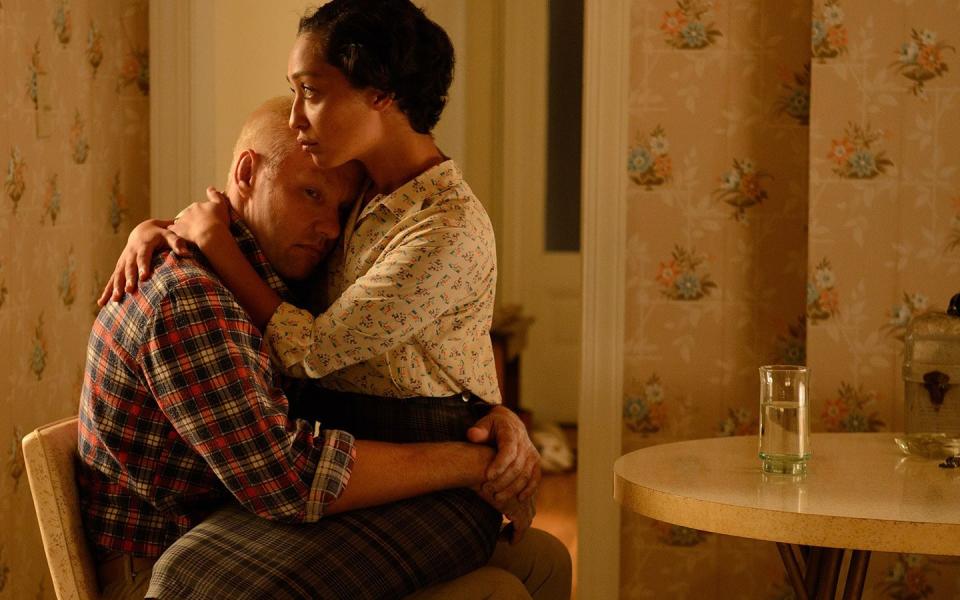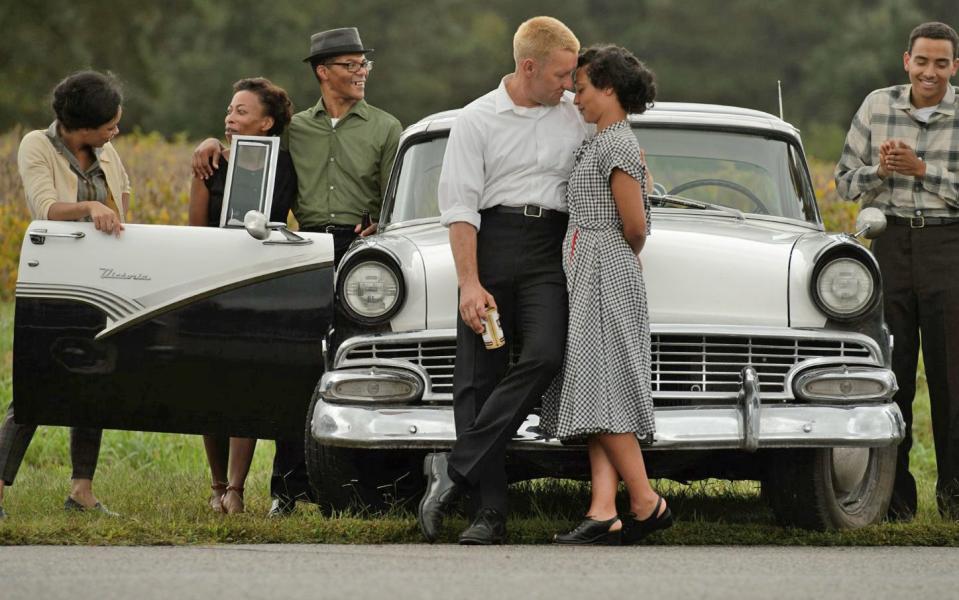Loving review: civil rights love story with a heart as hot as molten silver
Director: Jeff Nichols; Starring: Ruth Negga, Joel Edgerton, Christopher Mann, Nick Kroll, Martin Csokas, Michael Shannon. Cert 12A, 123 mins.
A couple sit on the porch of their house at night. “I’m pregnant,” she says. There’s a pause. “Good,” he replies after a bit, with a tentative smile. The pause is understandable. The news is good, but it’s also big – that is, even bigger than usual. Mildred Jeter (Ruth Negga) is black, and Richard Loving (Joel Edgerton) is white. And since it’s the 1950s, and they live in the US state of Virginia, what they’ve done is illegal.
The sensational new film from Jeff Nichols, for which Negga has been rightly nominated for a Best Actress Oscar, retells Mildred and Richard’s story with clear eyes, a cool head, and a heart as hot as molten silver. It follows the Lovings from their marriage in 1958 in a courthouse across the state line in Washington D.C., where no law preventing interracial marriage had ever been enacted, to the Virginia court hearing that saw them banished from their home state under threat of imprisonment, and through the years of legal and social tumult that followed. The couple's relationship finally prompted the overturning of those laws nationwide.
Technically, that makes the film a historical biopic – except Nichols, who pulled off a similar trick earlier this year in his science-fiction adventure Midnight Special, calmly dodges every expectation you have for the genre. Loving is short on grandstanding and hindsight, long on tenderness and honour, and sticks carefully to the historical record.
It also features two central performances of serious delicacy and depth. The assumption throughout Loving – both among the supporting characters, because of the period in which the story takes place, and among the audience, because we know how these films usually work – is that the husband will be the stoic warrior for justice, while the wife mops his brow in the evenings and gives him a reason to fight.
But Negga, an Ethiopian-Irish actress best known for a handful of TV roles, is the heroine here, playing Mildred as a black woman born in the margins but quietly fighting her way to the centre of her own life story. As played by Edgerton, meanwhile, Richard is fundamentally ill at ease with his relationship’s gathering significance – his small eyes bright with tension, his considerable physical bulk turned in on itself.
So it’s Mildred who gradually takes control, both in court and in front of the cameras – a transition that’s reflected in Nichols’ meticulous craft, as Negga finds herself more and more often at the centre of the frame. When Mildred takes a telephone call from a civil rights lawyer (Nick Kroll) offering legal aid, her first instinct is to say she’ll have to check with her husband.
But minutes later, she makes the decision herself. It’s only four simple words – “yes, we’ll see you” – but the shift feels quietly seismic.
Vitally, Nichols doesn’t begin by putting the Lovings’ story in its broader context. There are no title cards or historical prologue to soften or add distance to the flat absurdity of the situation. When the Lovings are told by a Virginia courthouse official that their relationship is “against the peace and dignity of the Commonwealth,” after they’ve been dragged out of bed by cops in the middle of the night, Mildred and Richard don’t reply because they don’t have to. The film lets the outrage remain implicit, and ours.
But while the Lovings encounter plenty of racism, particularly from Martin Csokas’s sheriff – “your blood don’t know what it wants,” he snarls – the locals of Caroline County aren’t a herd of slavering bigots. Nichols shows us black and white locals getting along famously at the local drag strip: race relations, as it were, seem generally stable at a community level.
The film’s determination not to overcook any single scene means the tears it eventually draws feel honestly come by – and the wind-rustled beauty of Adam Stone’s cinematography make us realise this world shouldn’t be simply written off as a bad job.
Look out for the two fields bisected by the road the Lovings take on their exodus from Virginia. At first they’re starkly split into differently coloured crops – but later, the flowers are ravishingly intermingled and swaying in the sun. It’s a beautiful, near-subliminal, and perfectly Nichols-esque reminder that nature abhors separation.

 Yahoo News
Yahoo News 


